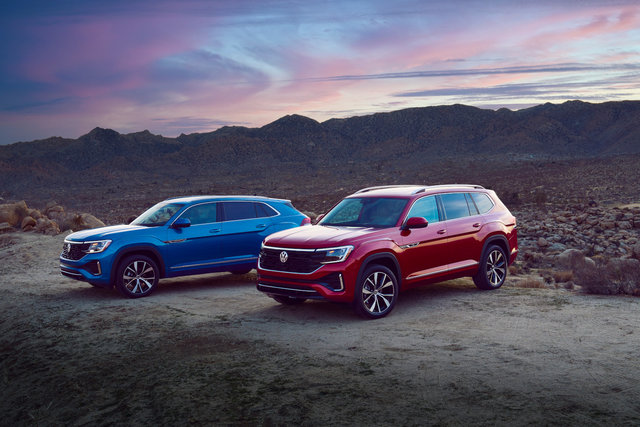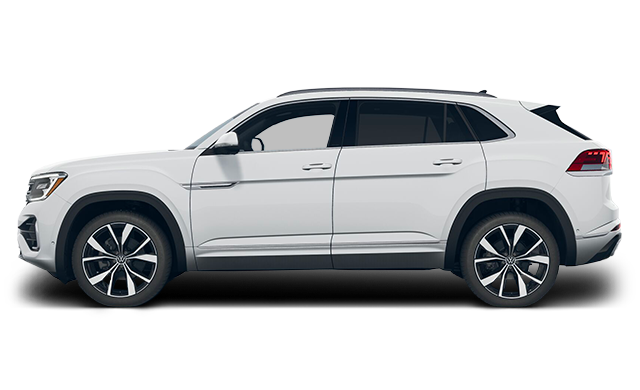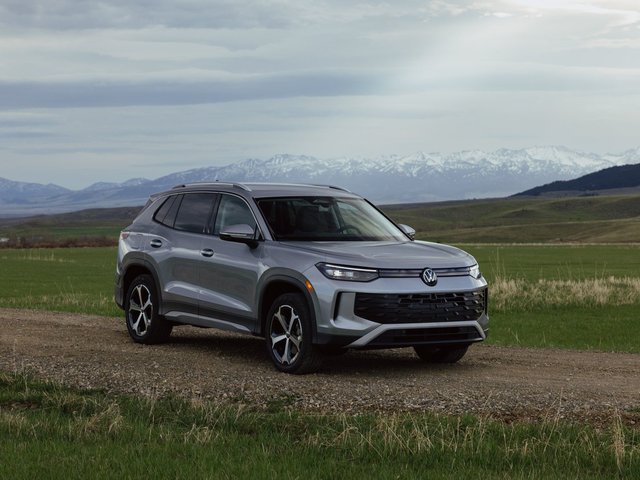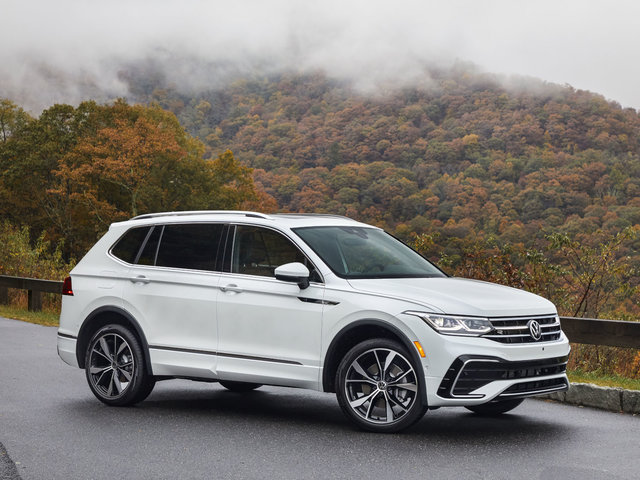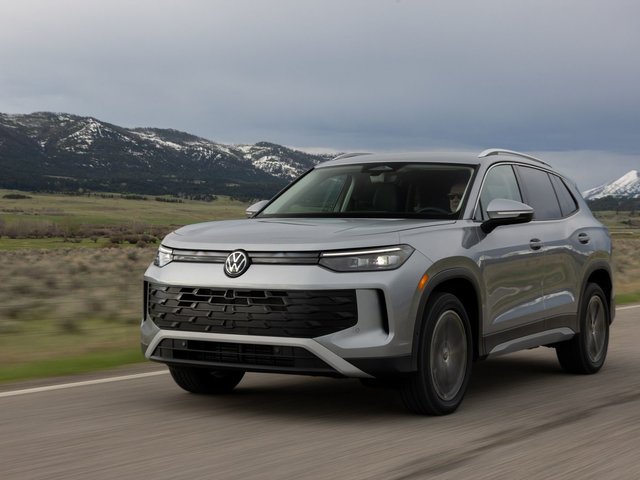Families exploring British Columbia's diverse terrain face a key decision: do you need three rows for the whole crew, or would a sportier two-row SUV better suit your adventures? The 2026 Volkswagen Atlas and Atlas Cross Sport share the same capable 2.0 TSI turbocharged engine and standard 4MOTION all-wheel drive, but their layouts serve different lifestyles. One prioritizes passenger capacity, while the other emphasizes cargo flexibility and a more dynamic profile for coastal and mountain driving.
Both vehicles deliver 269 hp and 273 lb-ft of torque through an 8-speed automatic transmission, providing confidence on Highway 1 climbs and control on wet Sea-to-Sky routes. The real contrast lies in how you use the interior space and how you want your SUV to handle BC's winding roads.
At a Glance: Atlas vs. Atlas Cross Sport
|
Feature
|
2026 Atlas
|
2026 Atlas Cross Sport
|
|
Seating Capacity
|
7 passengers (3 rows)
|
5 passengers (2 rows)
|
|
Maximum Cargo Space
|
2,735 L (seats folded)
|
2,197 L (seats folded)
|
|
Engine
|
2.0 TSI: 269 hp, 273 lb-ft
|
2.0 TSI: 269 hp, 273 lb-ft
|
|
Drivetrain
|
4MOTION AWD
|
4MOTION AWD
|
|
Length
|
5,097 mm
|
4,968 mm
|
|
Combined Fuel Economy
|
11.0 L/100 km
|
10.7 L/100 km
|
|
Best For
|
Larger families, carpools, extra passengers
|
Couples, smaller families, active gear haulers
|
Seating and Passenger Space
The Atlas delivers three rows of seating with room for seven. The second row offers flexible configuration options, and the third row accommodates adults for longer trips—useful when heading to Whistler with extended family or organizing carpool duty in Coquitlam. All three rows benefit from ample headroom and straightforward access, even with winter coats.
The Atlas Cross Sport focuses on two rows, seating five in a more spacious cabin. Without the third row, second-row passengers gain extra legroom, and the overall cabin feels more open. This layout works well for couples or families with one or two children who value comfort over maximum passenger count.
Cargo Capacity and Versatility
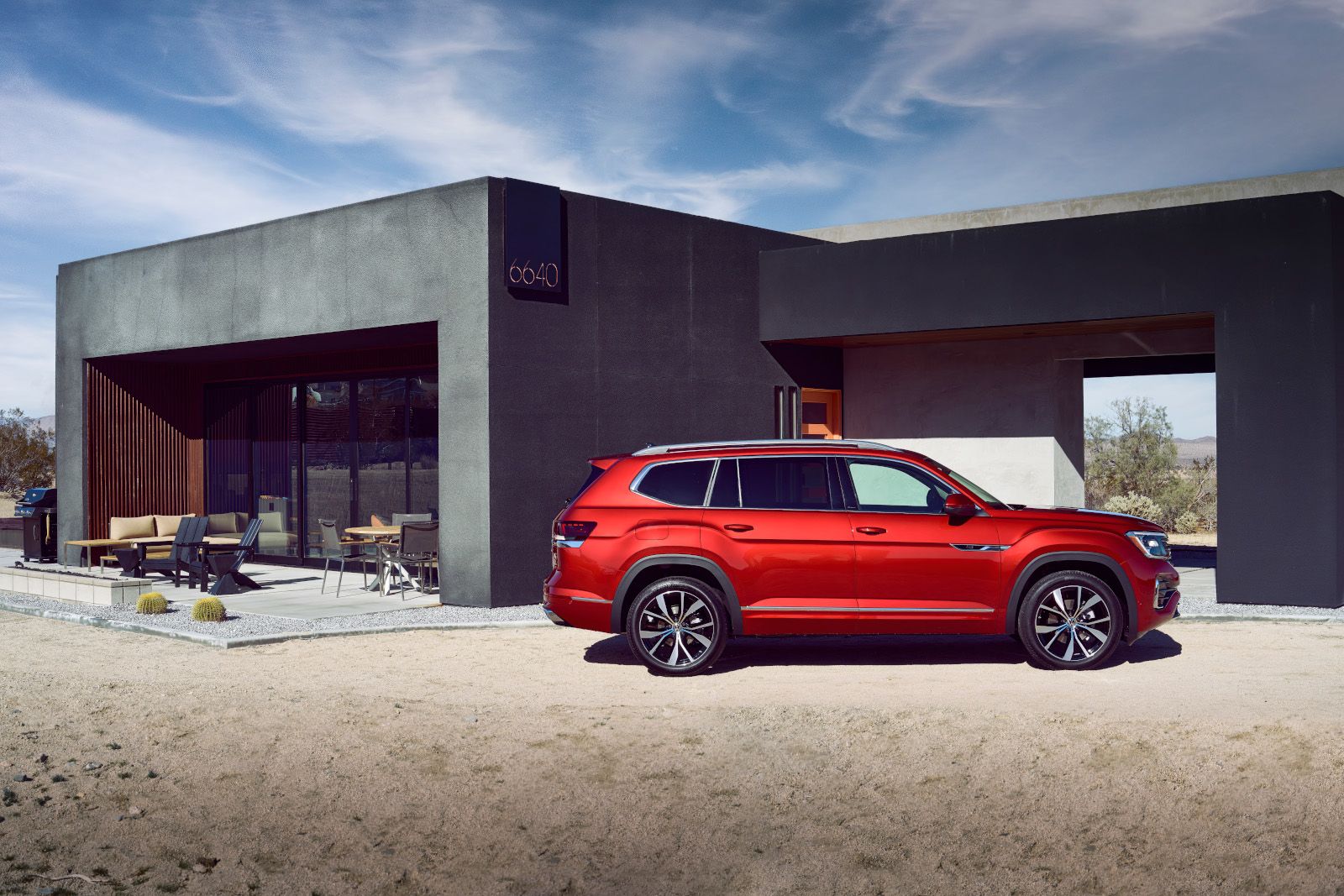
With all seats folded, the Atlas provides 2,735 L of cargo space—ideal for camping trips to Manning Park, loading gear for a weekend in the Okanagan, or bringing home harvest bounty from Fraser Valley farms. The three-row setup means you can balance passengers and cargo as needed: fold the third row for more room, or keep all seats upright when transporting larger groups.
The Atlas Cross Sport offers 2,197 L with the second row folded. While slightly smaller in total volume, the cargo area is deeper and more accessible without a third row in the way. This design suits mountain bikers hauling bikes to Burke Mountain, paddlers heading to Pitt Lake, or anyone who regularly loads bulky outdoor equipment. The lower load floor and wider opening make it easier to slide kayaks, skis, or camping bins into place.
Driving Dynamics on British Columbia Roads
Both vehicles share the same 2.0 TSI turbocharged 4-cylinder engine, producing 269 hp and 273 lb-ft of torque. The 8-speed automatic transmission shifts smoothly, and standard 4MOTION all-wheel drive distributes power to all four wheels for traction on wet pavement, gravel logging roads, and snowy mountain passes.
The Atlas, with its longer wheelbase (2,980 mm), provides a stable, planted feel on highway stretches and handles crosswinds well on the Coquihalla. The extra length translates to a smoother ride over uneven surfaces, but tighter parking lots and narrow Tri-Cities streets require more attention.
The Atlas Cross Sport, slightly shorter (4,968 mm), feels more agile in urban settings and easier to maneuver through Coquitlam Centre parking or along steep Westwood Plateau streets. The reduced length doesn't sacrifice highway composure, and the slightly lower roofline contributes to a more car-like driving experience without giving up SUV capability.
Fuel Economy
The Atlas Cross Sport returns 10.7 L/100 km combined, while the Atlas rates at 11.0 L/100 km combined. The difference is modest but adds up over longer trips—valuable for families logging hundreds of kilometres exploring BC's Interior or commuting daily between Coquitlam and Vancouver.
Towing and Capability
Both models offer identical towing capacity: 2,268 kg (5,000 lb) when properly equipped. Whether you're pulling a trailer to Cultus Lake or towing a small camper to Shuswap, either vehicle handles the task. The 4MOTION system provides extra confidence when backing boats down wet launch ramps or navigating steep, gravelly campground access roads.
Which SUV is Right for You?
Choose the 2026 Atlas if you need three rows for carpools, extended family trips, or simply want the flexibility to carry seven passengers when required. The larger cargo area accommodates family camping gear without leaving anyone behind, and the stable highway ride suits long BC road trips.
Choose the 2026 Atlas Cross Sport if you prioritize a sportier profile, easier urban maneuvering, and don't need a third row. The deeper cargo area better serves active lifestyles focused on bikes, skis, and paddle sports, and the slightly better fuel economy benefits daily driving around the Lower Mainland.
Experience Both at Journey Volkswagen of Coquitlam
Both the Atlas and Atlas Cross Sport bring Volkswagen's engineering to British Columbia's varied terrain. Stop by Journey Volkswagen of Coquitlam to compare them side-by-side and see which configuration fits your family's needs and driving style.

